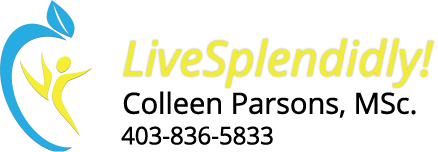The title of this blog comes from when I was having a conversation with a friend and I was trying to remember something that had happened on a particular day. It started with the comment – “it was Tuesday – because that’s what I do on Tuesdays”. It got a laugh from us both, but it also got me thinking about how dedicated I seem to be to some routines. Was I nuts? Rigid? Predictable? Or just dedicated?
After the Christmas holidays I heard how much people were looking forward to getting back to their routines. Food choices, exercise programs, daily habits. It got me thinking about what it is that makes us develop routines – so I had a look at the research. I have to say that there is a great deal of research AND level of detail that I’m leaving out – but here is what I found in a general way.
Routines free us from having to make a lot of small decisions. This saves time, energy and brain-space. If you had to think through each of the steps you take to get yourself out the door in the morning – you might be exhausted before you even arrived at your destination. Wake up, exercise, shower, breakfast, brush teeth, go! Morning routines are often automatic and help anchor our day. Pre-sleep routines are equally important but I’ll save that for another blog.
Some of these can be rituals – which are routines that you have attached some specific meaning – like meditation or exercise. Others are routines that just get you through the day.
Having a disciplined routine can free your creativity by putting some daily tasks on autopilot. They can protect you from more self-destructive impulses, bring order and predictability to your life, promote your health, and give you a few daily doses of recovery from the daily grind (going for a lunchtime walk, run or swim).
When routines become hum-drum
A past-due routine or one that has become stale – even if it’s a healthy one – can stagnate your creativity, have us forget the values and goals behind the routine and shrink our world.
Shaking it up, taking a break – being willing to mess with your routines in a way that may breathe life back into them can be very healthy and help you to ‘reset’ your motivation for them. This is a little like what we experience with the Christmas holidays or vacations. We get a break from our routines, only to feel motivated to get back to them. In Canada – the changing seasons sometimes help to keep things fresh and interesting.
When things are uncertain
From a brain-function perspective, uncertainty is not good for our brains because our brains are trying to predict the future to help us survive. When we have chronic uncertainty – our brains use up far more total body energy in order to resolve the uncertainty. When we have routine, we reduce uncertainty and conserve energy. This helps ensure our survival.
I took up riding a motorcycle about 10 years ago. During my lessons, I was struck by how foreign it felt, even though I had spent most of my life on a bicycle and at least 30 years driving a car. The uncertainty of finding the right gear, how the motorcycle would respond, the feeling of vulnerability of being so exposed to harm – all resulted in an exhausting experience. As with anything, eventually some of the mechanics became automatic. Shifting the gears, using the brakes, finding the signal light (and remembering to turn it off).
To resolve uncertainty, three processes play an important role: attention, learning and habituation.
Attention: Using the motorcycle example – when one feels uncertain and threatened, because of a changing internal or external environment, the brain enters a hypervigilant status to decrease uncertainty (about how to respond) as fast as possible.
Learning: From paying close attention and finding a way to respond, additional energy is needed. By learning from the experience, we find efficiency and the need for additional energy is reduced.
Habituation: From the learning, we’re able to be less vigilant on the familiar so it can prioritize when uncertainty or the unfamiliar shows up again.
If we feel a little discombobulated when our routines are upset – it’s not surprising that we yearn for those routines. They bring calm to our brain processes and allow us to pay more attention to other aspects of our lives. So, rest assured – you’re not too rigid or immovable or even too predictable if you have routines. You are human and need to have some certainty in order to be able to reserve your energy for those things that are a little more – uncertain.
Now, get back to your exercise or nutrition routines. They’re trying to save your life!
LiveSplendidly!
